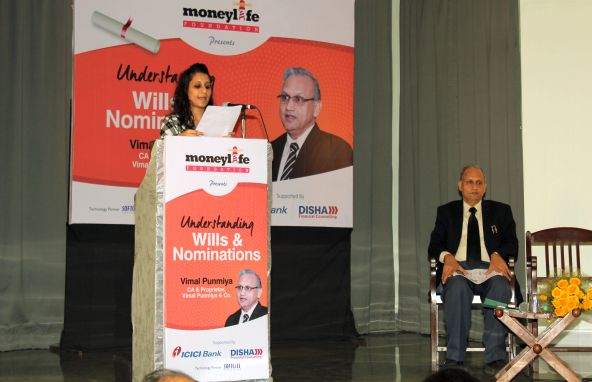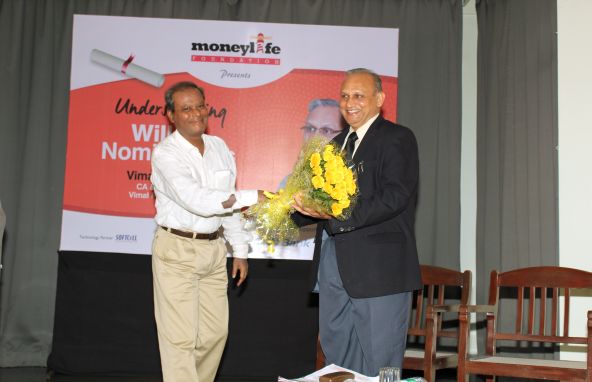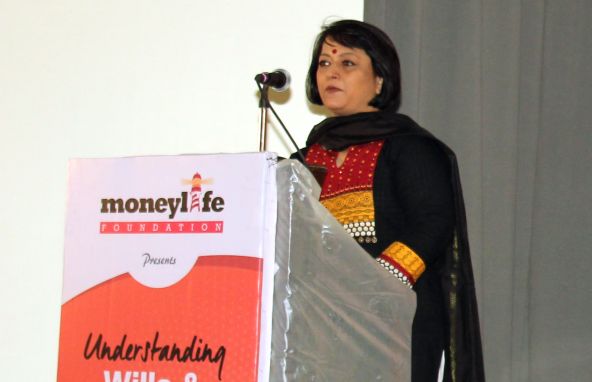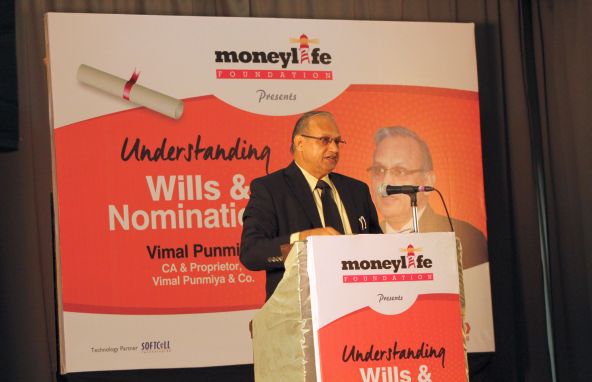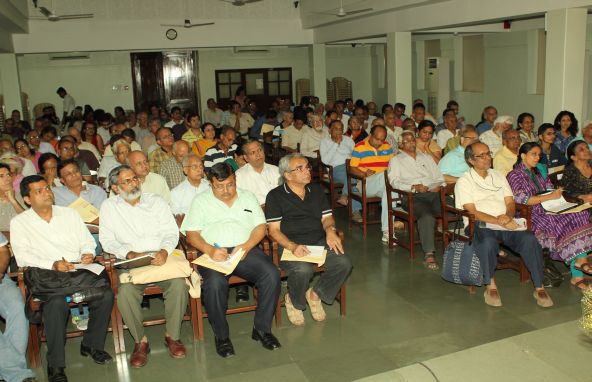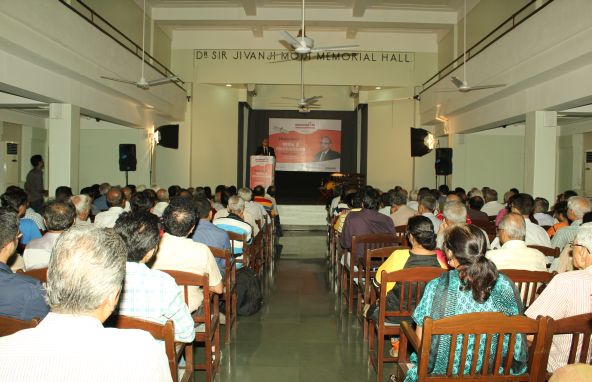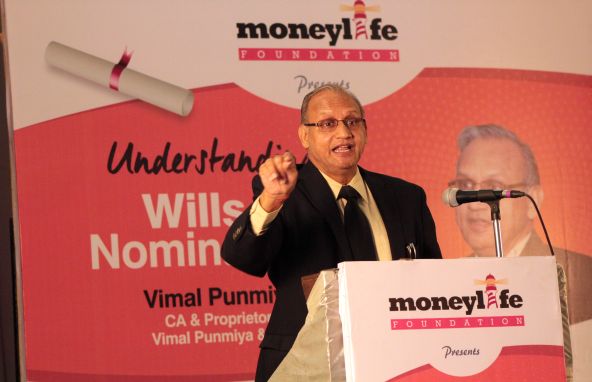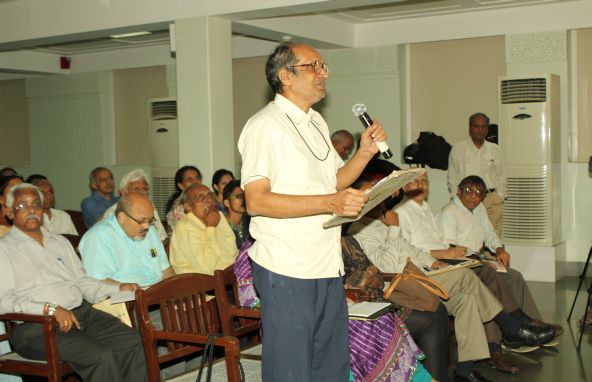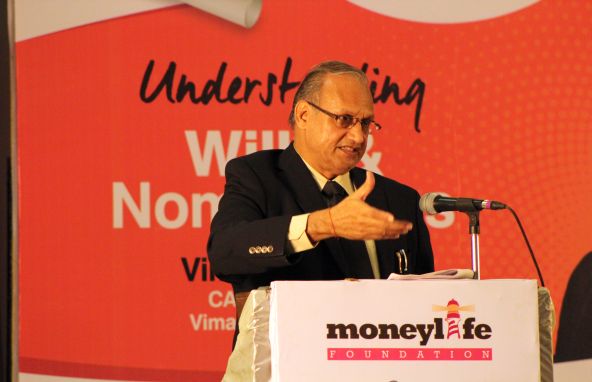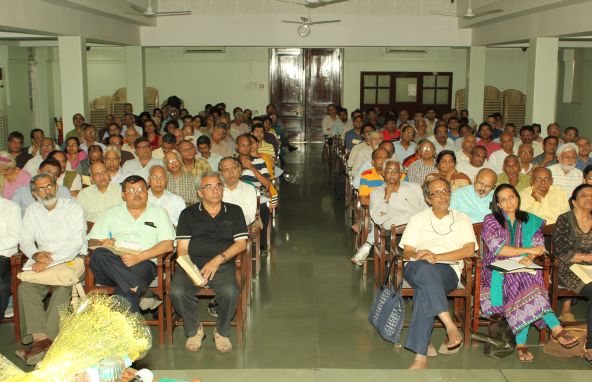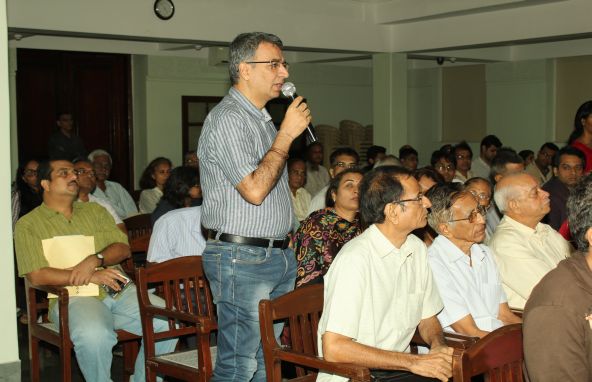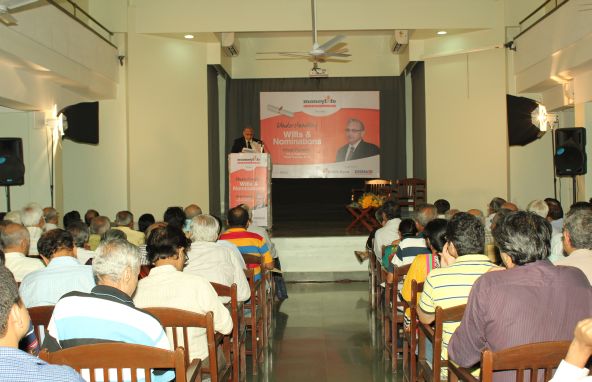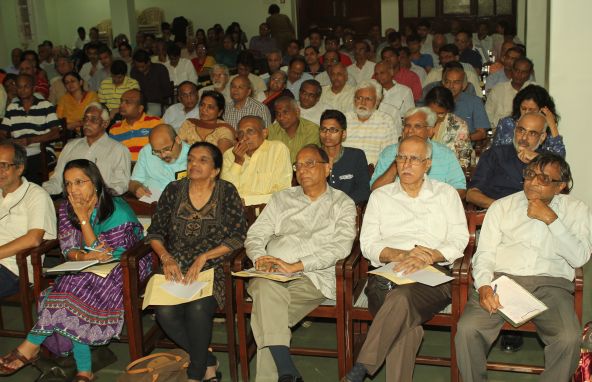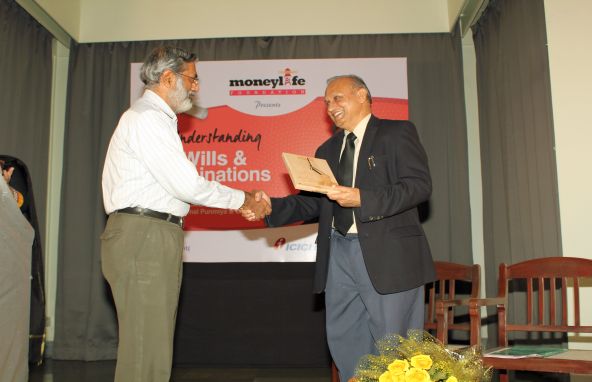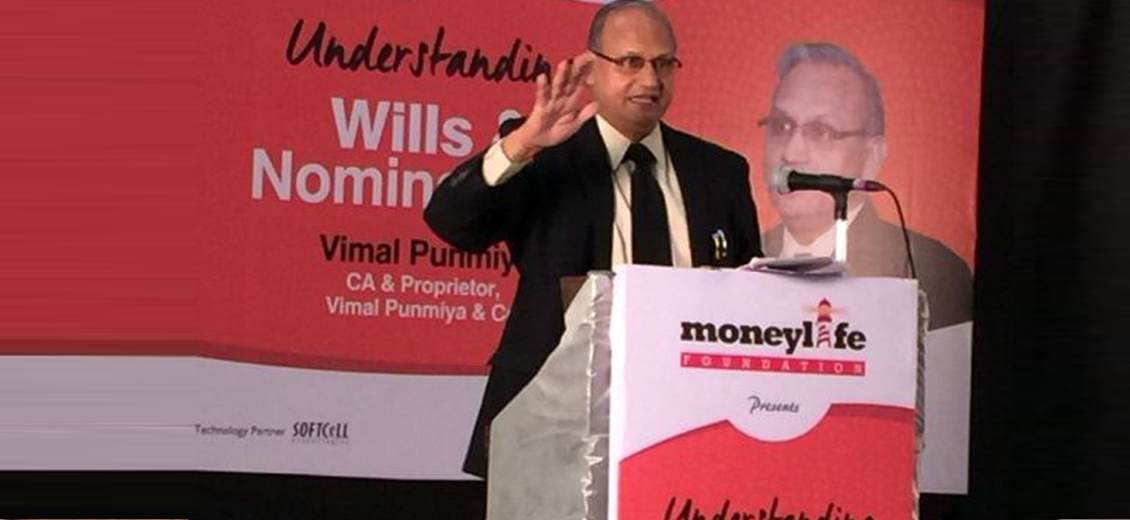
“I had a client, who used to live with each of his four sons for three months in a year. In addition, every time, each son would make him prepare a new Will. He ended up with about 32 Wills in 10 years. However, you can avoid all these hassles if you know the processes, rules, laws and need for making Wills,” says Vimal Punmiya, chartered accountant and Proprietor of Vimal Punmiya & Co.
Speaking at Moneylife Foundation organized seminar on “Understanding Wills and Nominations”, Mr Punmiya said, “Looking at how complicated and bureaucratic it is to deal with the legal and government machinery, it is better to have a clear Will to make it easy for those who come after you.”
“At least after 50, one must make a Will. Making a Will has obvious benefits, but in my experience, it also gives psychological ease of mind. Any Wills and planning to reduce tax is OK but evasion is not. This is important to remember while making Will as per the recent judgement from the Supreme Court,” he added.
As always, the seminar drew a great crowd and more so, because of the speaker who conducted the seminar. Moneylife Foundation invited Mr Punmiya to speak to the audience and take their questions, and he graciously accepted.
To begin with, Mr Punmiya explained that with more and more nuclear families having increasing amounts of accumulated wealth and assets, Wills have become more and more important to people today. He took the audience through the basics, beginning with the laws that govern Wills. He explained how the law sees a Will and what exactly a Will means.
“If one does not make a Will, then his property will be inherited by legal heirs in accordance with the laws of inheritance applicable to him. However, most of the people would like to dispose of their property according to their own wishes. Thus, there arises the need for making one’s Will,” explained Mr Pumiya.
Many in the audience were eager to know what the implications of Wills executed abroad for their properties and assets held in India. Mr Pumiya addressed these issues and the question of Codicils came up. He clarified the terminologies of Wills and spoke about the different types of Wills. Having taken the audience through the intricacies of the types and procedures of Wills, he turned focus to the Nominations.
Often, Nominees become an important part of the whole story. He said that a nominee is like an executor, who is entrusted to manage the property or asset as per the nominator’s wishes after his death. However, a nominee cannot sell property unless he is a legal heir. Mr Punmiya also talked about the several procedures involved in transfer of property or other assets after the death of a nominator. In previous seminars, he had said, nominees are often required when special children are involved setting up a trust in the name of that child with a trusted executor is commendable.
Replying to a query, he said, “If you want the distribution to happen simply, that is possible. Or you can also make a will so that you can prevent sale of assets, which is also possible.”
Mr Punmiya has been a Chartered Accountant for 39 years. He has written books on subjects like transfer of flats, stamp duty, registration, capital gains and has been a prominent speaker on topics of public interest like the Union Budget, I-T & Audit Provisions and Stamp Duty & Registration. He has held top-ranking posts at cultural organisations and is the recipient of prestigious awards from trade bodies and voluntary organisations.
Download a copy of the important points of Mr Punmiya’s talk and FAQs about Wills created by Mr Punmiya himself, here.


